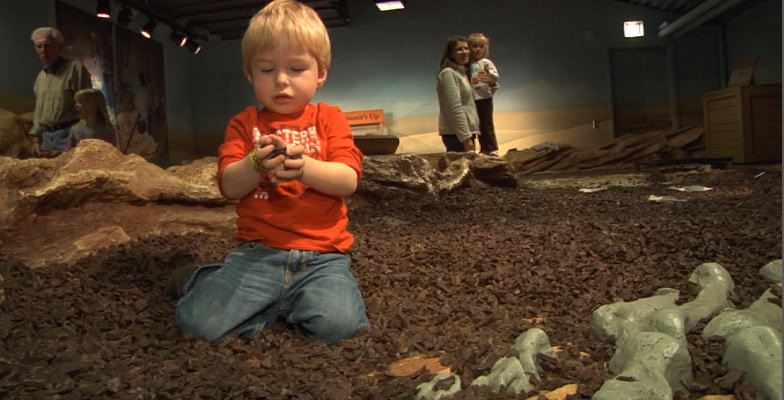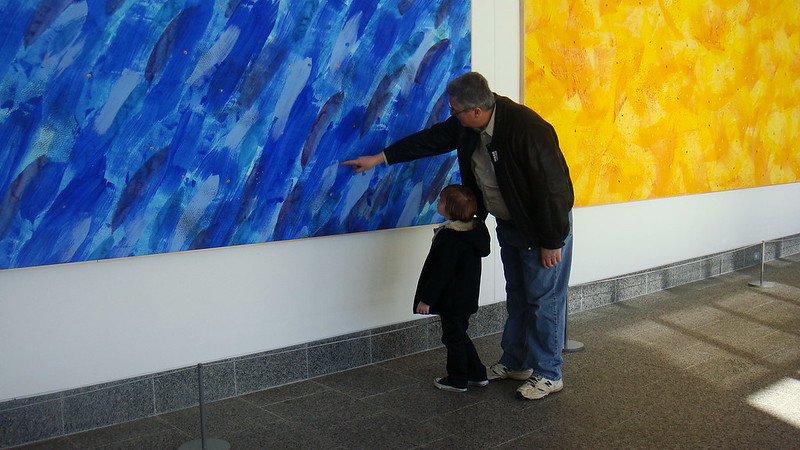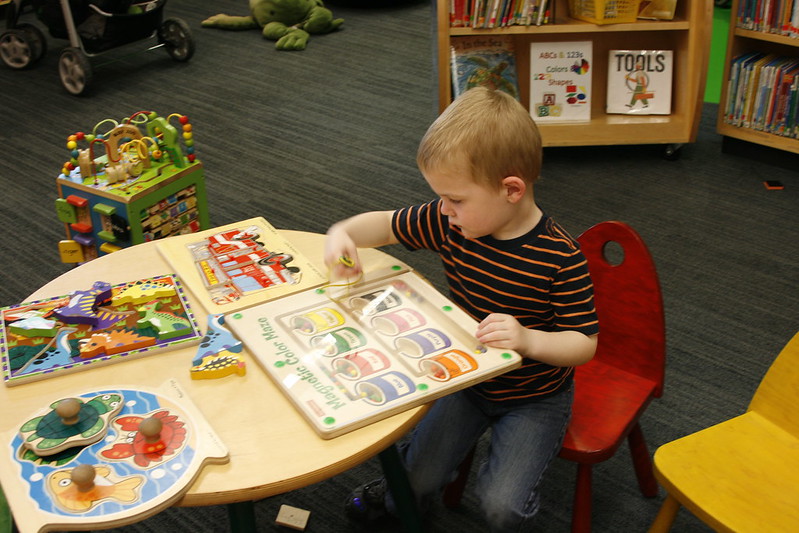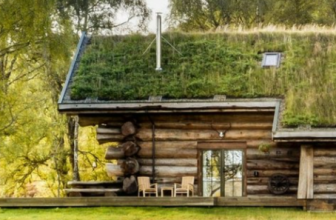Fostering a culture vulture
By the MiniTime Community

1. If you are visiting a city during the school year, save your trip to any child-oriented museum (including science museums) for a weekday afternoon. These kinds of kid-friendly, interactive museums tend to be awash with school groups in the mornings, and they can really overtake the space! By mid-afternoon, the students have cleared out and you and your family can visit in peace. –Alaina from Chicago, IL
2. Don’t expect your kids to love art museums on their own. It is a learned passion that must be stoked and coaxed. (This, coming from an art teacher!) In New York City, where I live, the Metropolitan Museum of Art has a great kids’ page on its web site with lots of interactive games that make artwork more accessible to children before they visit. These games will give you ideas on how to get more out of art museums everywhere. –Cecily from New York, NY
3. Children’s museums are full of opportunities for hands-on play. Your kids might get dirty or even wet, so dress them in play clothes. –Molly from Boise, ID

4. Before heading to a zoo or aquarium, I go online or call ahead to find out when the special shows and feeding times are scheduled. It’s generally best to visit a zoo in the morning, when the animals are active. On a hot summer’s afternoon, your visit will be fairly boring because most animals will be sleeping. –Claudia from Caledonia, MI
5. When my family takes a city break, I always take a good look at the opening hours and admission fees at the museums we want to visit. So often, admission is discounted or even free on one day of the week. And sometimes a museum stays open later on one weekday, and it can be fun to visit after dinner with kids—when the crowds are gone. –Molly from San Diego, CA
6. My kids and I love visiting our local children’s museum so much that I eventually upgraded our membership to include ACM (Association of Children’s Museums) status. That means we have free access to over 150 children’s museums in the US. Now, every time we take a road trip or even a daytrip, we can visit the kids’ museum in our destination for free. It’s always good for a morning or afternoon of interactive playtime and fun learning. Money well spent! –Vivienne from Minneapolis, MN

7. I lived in France for several years, and witnessed many French art teachers giving class tours of the Louvre and other museums. They had a real talent for making art fun. One time, I overheard a teacher asking her pupils to search a gallery of 17th-century portraits and find the ugliest lady. Then, the man with the biggest nose. Next, the person who had a big secret. And then, the person who loved cats the most. And so on. The kids had a ball inventing stories to go with the portraits. It was much more interesting and entertaining than it would have been if she’d simply told the children what they were looking at. Now that I have kids of my own, we play these kinds of games often when we visit museums. –Andrea from New York, NY
8. When taking the kids to a museum, let your very first stop be the gift store. Purchase several postcards of the important works on display (or download images off the museum’s web site before you go). Then make a game or competition of finding those same works in the museum. It makes your visit more interactive and it’s a lot of fun. –Claire from Chester, NJ
9. If you’re visiting a museum with a toddler or a pre-schooler in tow, begin your day in a nearby park or outdoor exhibition area, if one is available. Little kids can tour a museum calmly and with more interest if they’ve had a chance to run off excess energy first. –Kiki from New York, NY
10. A day or two before your visit, have a look at the museum’s web site with your child. This will help prepare her for the kind of exhibits you’ll be seeing. Let her choose what to see first! And remember, you don’t have to see everything in one visit. Her memories will be positive if you leave before she gets tired or cranky. –Wendy from Seattle, WA
Banish vacation boredom with our printable travel games for kids.





